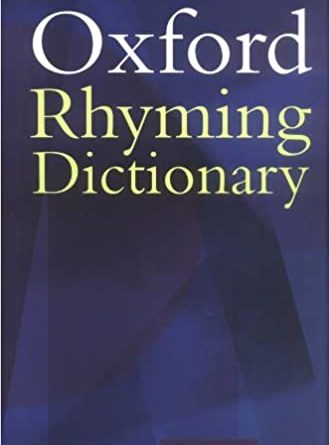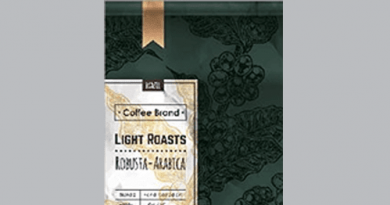The advantage of using a rhyming dictionary in writing songs
Bringing a rhyme is not art. Many lyricists think so, so they consider the use of a rhyming dictionary sacred. Discovering all the possible rhymes you can use can only benefit your song. Before we move on to the great benefits of using a rhyming dictionary, I just want to cover a basic topic of rhyme. This will help me make a case for why a rhyming dictionary is useful.
Masculine vs. feminine rhyme
Masculine rhymes are easily understood. Any one-letter word is rhymed with another one-letter word in a masculine rhyme.
“Pie” and “tie” are masculine rhymes. “Love” and “glove” are masculine rhymes. Easy enough, isn’t it?
The feminine rhyme is a little more complicated. “Feminine, complicated?” You ask “How could that be ?!”
Multi-syllable words have stressed and unstressed syllables. Say the word “rhythmic” aloud. You may hear how the syllable “rhyme-” is emphasized more than the syllable “-ing”. Say it again and listen carefully.
Rhymes usually occur in the stressed syllables of a word. In the case of the word “rhythm”, the “rhythm-” part is the part we want to spread.
With that in mind, the words “rhyme” and “time” are two feminine rhymes. This is not just because they have two letters, but because strong pressure (or rhythmic pressure) occurs at the end of the last syllable and not in the last letter. I’ll keep the stressed syllable in bold, so it’s clear:
Rhyme
Team-ing
Did you see that The rhyme occurs away from the last letter? So this is a feminine rhyme. The same goes for the words “flying” and “strong”. These are feminine rhymes because the rhyme occurs after the last letter. If you say the words out loud, you will hear that the syllables “flight-” and “possible-” are stressed syllables, so they hold the rhyme. Create an idea
But a multi-letter word that ends in a strong letter? “Great” is like the word. Well, what I haven’t told you before about masculine rhymes is that they don’t just happen for a syllable word, but they also happen for a multi-syllable word that ends on a stressed syllable.
Say the word “sublime” out loud. Can you hear how the syllable “-lime” is a stressed syllable? It further emphasizes that the “sub-” part. For that reason, it is a masculine rhyme. The nice part is we can spread it out with another masculine word that is only a pronunciation long. For example “Sublime” and “Time” rhyme. Cool, isn’t it?
As long as the last letter is emphasized, we will have a masculine rhyme. This is why a syllable word is a masculine rhyme. They have only one letter, so by their very nature, it is the last letter.
Spelling dictionary
I recommend buying a rhyming dictionary. I know what you’re thinking: “I don’t need it, I go to RhymeZone.com.” Okay, you can do that, but the real thing is better for a few reasons.
One thing I noticed about online dictionaries was that they had trouble distinguishing between masculine and feminine rhymes. They force rhymes that don’t fit. If you type a masculine rhyme like “bling”, they will give you back some feminine options that won’t make much sense. Words like “fight” can be cut. “Fight” is a feminine rhyme.
Stress is on the “fight-” pronunciation, not on the “-ing”. If you try to spread “bling” with “fighting”, you will be forced to put pressure on the last letter, where it is not. This will make the sound of your song unusual. Say “Fighting” out loud by pressing “-ing” and you’ll see what I mean. “Fight-ing.” Sure, I guess that rhymes with “bling” now, but it sounds weird.
To their credit, in my recent searches for online dictionaries, they seem to be doing a better job of displaying masculine and feminine rhymes if appropriate. If you use an online rhyme dictionary, look for potential masculine / feminine rhyme problems and avoid rhymes that don’t work.
In addition, it is good to have a body rhythm dictionary, because you can turn the pages and test many options at once. They break masculine and feminine rhymes into separate sections, so there is no confusion. My Rhyming Dictionary even has a section on Triple Rhymes, which contains words that have their stressed letters as the third letter from the end.
For example
I still can’t give you any hard evidence as to why you shouldn’t move away from a rhyming dictionary (whether it’s an actual book or an online version). Let’s look at a real-world example. Here’s a line from the Nickelback song, “Photograph.”




